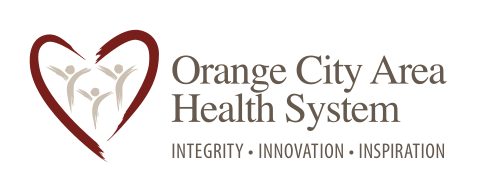-by Dr. Alan Laird, Chief Medical Officer
It often appears something is promoted one day as good for your health, and the next day (or week, or month, or year) it is the opposite. Often, any single article reflects only one aspect of the medication, the nutrient or the substance being reviewed. The truth (at least in my opinion) is that there are upsides and downsides to every treatment, supplement, medication, vitamin or substance. Weighing the good and the bad can be a difficult. It is a daunting to task for any healthcare provider to make the best recommendation for any individual. Recently that has become true of even good old aspirin. It has been around since at least the turn of the previous century (1900), but its recommended dosages and uses have changed over time.
The USPSTF (U. S. Preventative Services Task Force) recently drafted recommendations against the use of aspirin in the primary prevention of cardiovascular disease in most adults. To understand this, we need to understand a few concepts.
First, there is a difference between primary and secondary prevention. Primary prevention is meant to prevent a disease from ever occurring.Things like eating right and exercising to prevent a person from becoming obese; or healthy living in an attempt to prevent contracting diabetes would be examples.
Secondary prevention is aimed at detecting a disease early and preventing further injury from that disease. Examples similar to the aforementioned include weight loss interventions once one has become obese; or blood sugar control if one has diabetes.
We have known for some time that aspirin is very helpful in secondary prevention for cardiovascular disease and stroke. The risk of aspirin therapy can include injury to the kidneys, injury to the intestines or stomach (ulcer disease) and an increased risk of bleeding. It is that last risk, that actual confers the benefit in heart disease, vascular disease and stroke. Aspirin limits the ability to form the blood clot that leads to a heart attack or stroke, or if a clot does form, it makes it harder for the blot clot to enlarge. Overall, most people who have already developed vascular disease, will benefit from aspirin therapy far more than having harm from it.
However, we have never quite known about routine daily aspirin use for primary prevention. Partly because we have a hard time predicting who will have a heart attack, stroke or blocked blood vessels. We do know what increases your risk for those things: smoking, high blood pressure, diabetes, sedentary lifestyle, family medical history. But none of them, or any combination of them, guarantees when or if you will have heart attack or stroke. So for the most part, our belief that aspirin plays a part in primary prevention comes from extrapolating its help in secondary prevention. The evidence we now have calls that belief into question.
We have many years of studies looking at persons taking aspirin for primary prevention. When compared to taking a placebo (“sugar pill”), aspirin did not reduce the rate of first stroke, first heart attack or first vascular event. That is of course if we give it to everybody, no matter what his or her risk level of heart attack or stroke is. For those who are at highest risk, it remains unclear as to benefit or harm.
To make matters worse people taking aspirin were more likely to have an increased risk of bleeding compared to those not taking aspirin, although that increased risk was quite small. So, it is very hard to recommend a therapy that may not help you, and could even cause you harm.
Here is what the USPSTF has said. They discourage starting adults age 60 years or older on aspirin for PRIMARY prevention of cardiovascular disease. Between the ages of 40 to 59, those who have a 10% or higher 10-year cardiovascular disease risk, should make an individualized decision about aspirin use for PRIMARY prevention of cardiovascular disease. The 10-year cardiovascular risk is calculated from factors including age, race, sex, blood pressure, cholesterol levels and medical history. Please note that primary was capitalized. The evidence still indicates benefit in secondary prevention.
So as you can see this is far from an easy yes or no answer. As with most medications, vitamins, nutrients or supplements, this should be a conversation with your healthcare provider. In full disclosure, I am over 60 and have taken a daily 81 mg of aspirin for 20 years. I do not plan on changing that, despite taking it for primary prevention. But, I have discussed it with my doctor (yes, that is someone other than me) and I do have significant risk factors.
So may I recommend at your next check-up with your healthcare provider, ask them if aspirin therapy is right for you. I would not start it or stop it without the assistance of your medical provider to weigh all the pros and cons. And of course this is about aspirin on a daily routine regular basis for those who do not already have vascular disease. There are many other reasons to take aspirin that were not addressed in this recommendation by the USPSTF.

